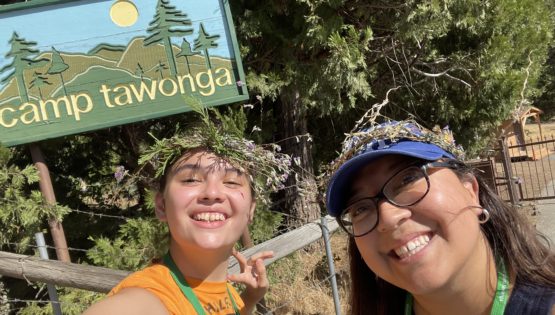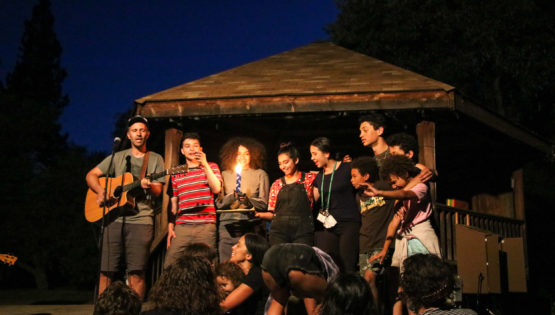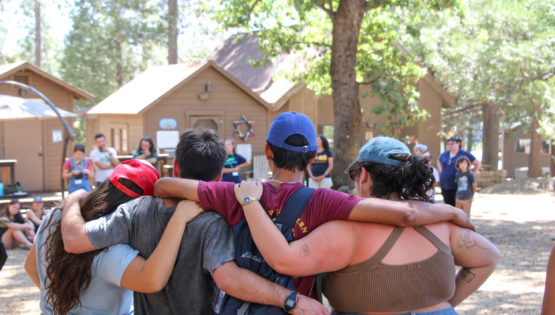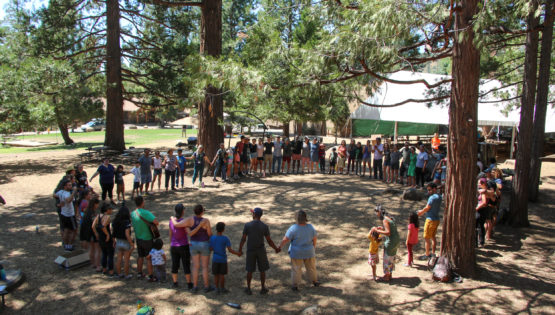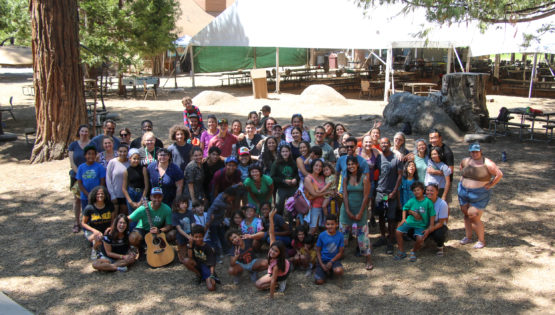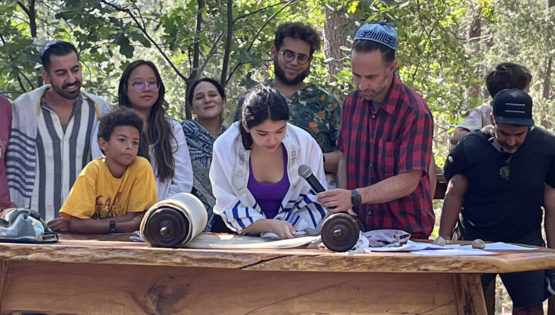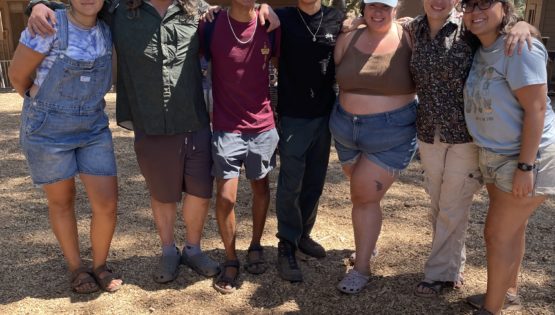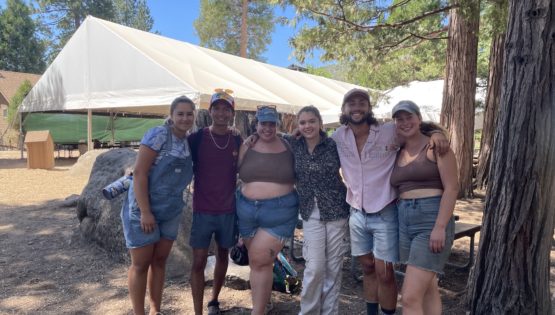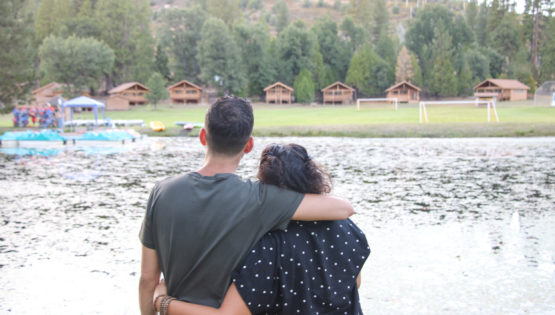2,435 Miles Away From Home, I Finally Found a Family that Looked Looked Like Mine
By: Gabriela Orozco
Tawonga’s Jewish Families of Color Family Camp gave me a special kind of magic — the strength, courage and community to continue existing in the world as my whole, uncompromised self. And it made me want to take that magic with me and share it with the people I love.
I use the word uncompromised because, as a Latina Jew with an ethnically and culturally mixed family background, I am too often forced to minimize or negate my complex identity when I am in Jewish spaces. This phenomenon is commonplace for Jews of Color, as reported by the Jews of Color Initiative’s Beyond the Count study. That’s why, when I heard about Tawonga’s Jewish Families of Color Family Camp, I was immediately prepared to fly well over two thousand miles for the chance to find a community where I wouldn’t be the only Jew with a mixed-heritage background, but one of many. And Tawonga (or should I say, the incredible Kiyomi Gelber) delivered, inviting me to work for the Family Camp as a counselor and make so many incredible memories with families and co-counselors alike. We helped to create positive experiences of Judaism in a multicultural context for kids who came from families like mine.
It’s crazy to think that I had to travel 2,435 miles in order to witness a family that looked like my own. But it was beyond worth it, for the joy and strength it gave me. The night before I arrived at Camp Tawonga, I was blessed enough to be hosted by Isaac Zones and Vivian Santana Pacheco, two Tawonga community members who would also be attending the Family Camp. Their home was one where Judaism and Latinidad felt so beautifully interwoven that the two were barely distinguishable from one another, let alone in competition with one another. As a child of divorced parents from two different cultures, this was something I’d never truly known before. It was revolutionary, and incited fierce hope in me – hope that the next generation of Jewish kids with multiracial backgrounds will be able to find themselves represented among adults and community leaders, and find a community that empowers them to celebrate all aspects of their identities simultaneously.
At Tawonga, I was able to celebrate my heritage through Latino music, which for the first time in my life didn’t feel out of place in a Jewish setting. After lunch one day, songleader Isaac Zones brought Spanish lyrics – el Unico que hace la paz, que traiga la paz – into the prayer for peace Oseh Shalom, and the ease with which everyone embraced the Spanish alongside the Hebrew had my very soul singing. Another first for me: the music was played for us, by us. During the adults-and-big-kids-only silent disco on the last night of camp, one of my fellow counselors, Luisa, ran a music station consisting only of Latino music that kept us all dancing with such uninhibited joy and shameless attitude. I danced so hard that I woke up with bruises on my feet the next day, triumphant and without regrets.
On the last night of family camp, I stood in a fervent, tearful huddle with the friends I’d made, other Latine counselors and parents, hurting from the pain of exclusion and misunderstanding we’d all separately experienced in Jewish spaces. We recognized how much we loved the Jewish communities we were a part of, even when the experience dismissed or diminished us, and we spoke about the pain we felt when it happened. I shared my own experiences of being the only Latina student in my college’s Jewish studies program and the racism I’d had to deal with— and for the first time ever, I was speaking to a group of people that understood how deeply isolating and exhausting it was, that knew from lived experience exactly how much strength and willpower it took to keep going.
I know that healing is not a linear process, and that for many older generations of Jews of Color, such as my dad, the racism and microaggressions they’ve experienced makes it difficult for them to ever feel entirely comfortable in Jewish spaces again. But even on my first night at Family Camp, I texted my dad and twin sister to tell them how much I wished they could witness all the magic that Tawonga brought out:
I know that California’s really far away, but seeing how all these families are finding empowerment in their intersectional Jewish identities and celebrating multiple languages being spoken at home, just like us, makes me want to see you guys here, enjoying this experience, too.
I told them that I could easily see my little brother among the kids enthralled with catching frogs from the camp’s lake, excitedly speaking in Spanish and tugging my dad along with him. I could imagine my dad delighting in all the various diaspora histories shared by the adults present, or the three of us having the time of our lives at the silent disco, dancing to the same songs we listened to at home.
Tawonga’s POC Family Camp, or programs like it, might not have been around when I was a kid, but I truly believe that they will enable so many more kids with backgrounds like mine to find more love for their Judaism and strength in experiencing it. Tawonga told me that I wasn’t alone anymore, and I know that the children, parents, and fellow counselors I met there won’t be alone either. I’m hoping to come back next year with my own family, and I’m ready for us to sing, pray, dance, and heal together when we do.

